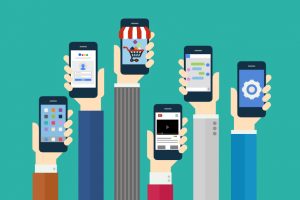The “mobile first” strategy has taken on a new meaning. It no longer means simply creating an app. The internet has become more integrated into daily activities and is no longer confined to work-related tasks. As the internet has become a basic human right, the world is moving towards more mobile technology. Businesses that have stubbornly stuck with a simple website may soon find themselves scrambling to catch up.
-
Internet of Things
To put it simply, it means more everyday objects can connect to the internet and be operated remotely. For example, you can control your television, house lights, security system and other household items with a simple app on your mobile phone. If you love your movies on the big screen, your TV can now connect to the internet and stream iFlix. There’s no need to get your laptop out and force yourself to be content with a 13- or 15-inch screen.
-
Mobile payments
Countries like China have advanced quickly to using cashless payment systems through the innovation of mobile apps. Users pay for meals, cab rides and other items via their phones. Even splitting the lunch bill with coworkers is no-fuss in China.Also, shoppers today expect their favorite brands to have their own mobile application where customers can easily shop-on-the-go. Big companies have already released their own and small businesses may soon follow suit.
The comfort level with shopping online has reached different heights recently. Buyers now expect technology to allow them to purchase items while chatting without ending the virtual conversation. This is a new trend referred to as social commerce. While it’s the direction where ecommerce seems to be heading, the technology behind it is very new. On the positive side, enterprises that manage to cater to this need would have a definite advantage over competition. The bad part about is the coding you may be using to utilize this technology may quickly become obsolete as social media platforms are still experimenting.
Data security is also required to be much more sophisticated. More transactions are taking place online as well as more data is exchanged and stored on gadgets and remote servers. This includes protection of names, phone numbers, bank accounts numbers, credit card numbers and other personal information. Cybercrime is a very relevant concern these days and poor security could lead to disastrous events with a permanent impact on business.
-
Location-based services
And it all began with Uber. The private-car booking app has inspired applications for different uses in other industries using the same technology such as food delivery. Not all apps following the same idea has been successful, such as a laundry service app called Washio. However, these experiences have provided valuable insights for improvements.Other apps such as Zomato and AirBnB use technology similar to Google Local. We’re expecting to see more promos, freebies and recommendations based on users’ whereabouts this year.
-
Artificial intelligence
Apple’s Siri was just the beginning. Operating systems began integrating their own artificial intelligence, helping individuals with restaurant suggestions, pulling up search results for queries made by voice, and more.Waze is a popular traffic navigation community-based app that makes use of AI for direction instructions.











